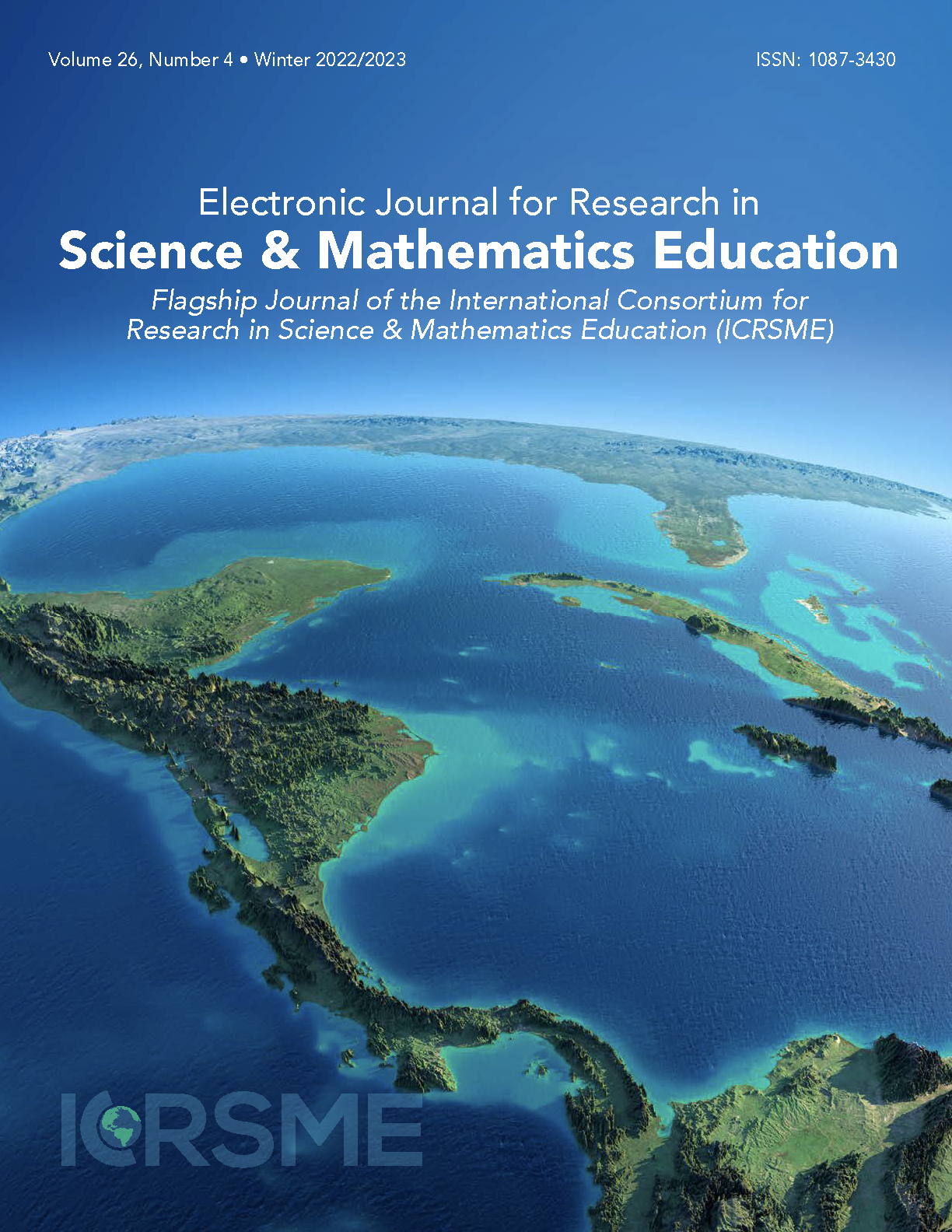An Analysis on the Effect of Design-Based STEM Activity Development Process on Prospective Maths Teachers’ Problem-Solving Skills and Scientific Creativity
Main Article Content
Abstract
The aim of this study is to investigate the effect of design-based STEM activities developed by prospective secondary school maths teachers on their problem-solving skills and scientific creativity. An explanatory sequential mixed methods design was used in the current study, involving 45 senior students (i.e., prospective secondary school maths teachers) studying at a state university in the West Black Sea Region, Turkey during the academic year 2018/19. The participants were selected according to the purposive sampling method to be involved in our study, which was conducted during a course named “Science, Technology, and Society”, and the implementation stage of which took a total of 14 weeks, as three course hours per week. “Problem Solving Inventory” (PSI) and “Scientific Creativity Test” (SCT) were used for the purpose of obtaining the quantitative data of the research, whereas interviews were conducted with the prospective teachers for collecting the qualitative data. The quantitative data were analyzed using dependent t-test, while qualitative data by descriptive analysis. A slight increase was detected in participants’ problem-solving skills in relation to developing STEM activities, though not statistically significant. However, as a result of the implementation process, the scientific creativity of prospective teachers turned out to increase in such a way that it indicated a statistically significant difference.
Article Details
© 2025 Electronic Journal for Research in Science & Mathematics Education (EJRSME)
